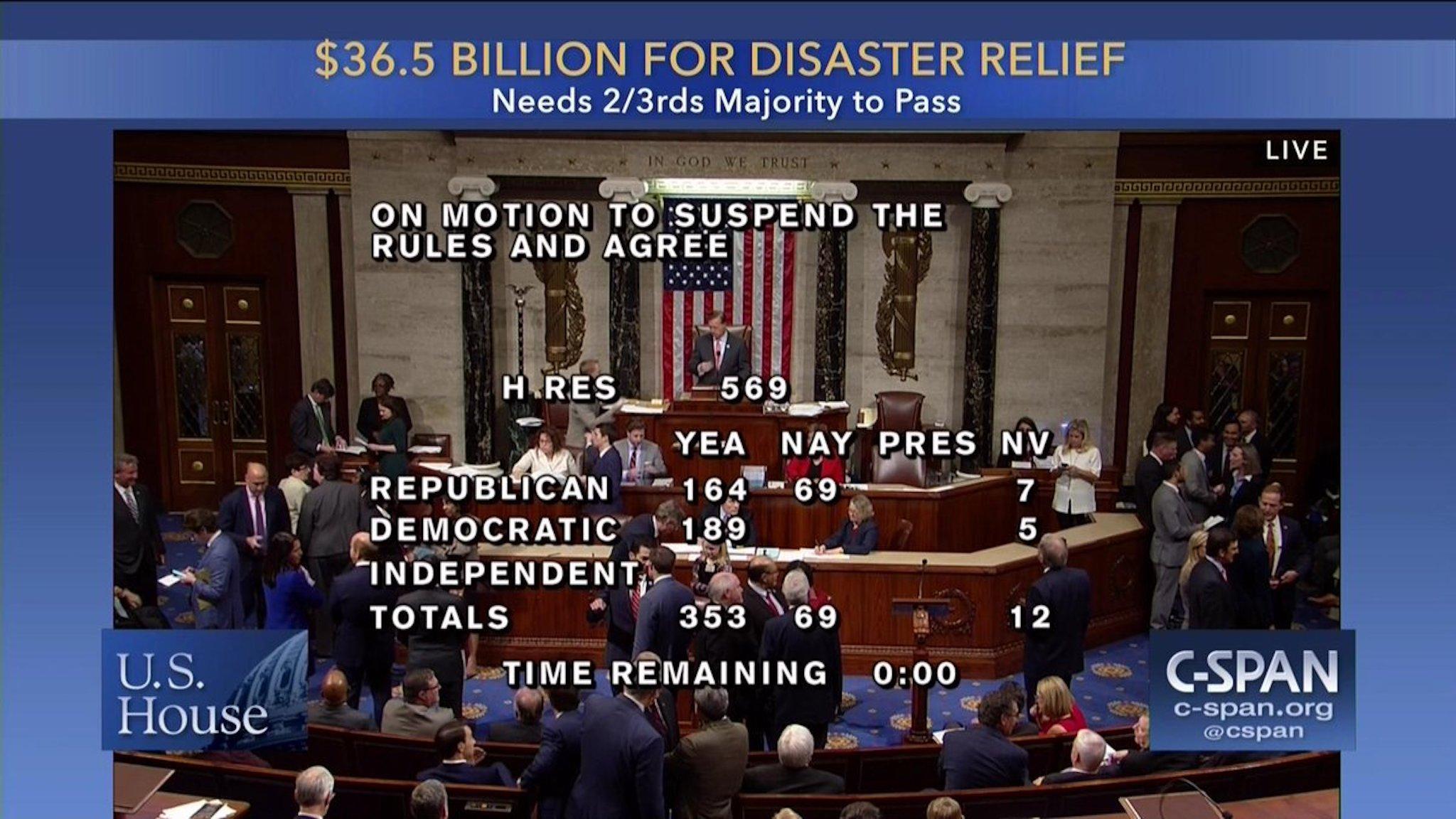House approves $36.5bn in aid for areas devastated by hurricanes and wildfires - but 69 Republicans vote no
Congress is expected to approve billions of dollars in disaster aid in the coming months

Your support helps us to tell the story
From reproductive rights to climate change to Big Tech, The Independent is on the ground when the story is developing. Whether it's investigating the financials of Elon Musk's pro-Trump PAC or producing our latest documentary, 'The A Word', which shines a light on the American women fighting for reproductive rights, we know how important it is to parse out the facts from the messaging.
At such a critical moment in US history, we need reporters on the ground. Your donation allows us to keep sending journalists to speak to both sides of the story.
The Independent is trusted by Americans across the entire political spectrum. And unlike many other quality news outlets, we choose not to lock Americans out of our reporting and analysis with paywalls. We believe quality journalism should be available to everyone, paid for by those who can afford it.
Your support makes all the difference.The House of Representatives has approved a measure to provide $36.5bn in aid for areas recently affected by hurricanes and wildfires – dismissing concerns from some Republicans about the rising cost of disaster relief.
Democrats unanimously supported the legislation, while 69 Republicans opposed it.
The package includes $18.7bn for the disaster relief fund of the Federal Emergency Management Agency (FEMA) and $576.5m for wildfire recovery efforts.
The legislation also bails out the financially troubled National Flood Insurance Program as well as provides $1.27bn for disaster food assistance for Puerto Rico.
Congress advanced the bill, which still has to be approved by the Senate, as wildfires rage across Northern California and Puerto Rico continues to reel from devastation caused by Hurricane Maria.
More than three weeks after the storm hit the US territory, the island is still largely without power.
President Donald Trump on Thursday suggested that Puerto Rico should soon start bearing more responsibility for its own recovery efforts, saying the federal government's emergency responders can't stay there “forever.”
Meanwhile, cities in Texas, Florida and other areas along the Gulf Coast are continuing to rebuild after being hit by Hurricanes Harvey and Irma.
Congress is expected to approve billions of dollars in additional disaster aid in the coming months. It already approved a $15.3bn relief measure in September, and the White House submitted a request last week for a new disaster relief package topping $29bn.
Many conservatives worry that the increased demands for disaster relief could take their toll on the federal government, which already spends more money than it takes in. The Congressional Budget Office estimated last week that the deficit for the 2017 fiscal year, which ended September 30, was $668bn, an increase of $82bn from the previous year.
Heritage Action for America, the political arm of the conservative Heritage Foundation, called on House Republicans to vote down the aid measure on Thursday, calling the flood insurance bailout “irresponsible.”
Representative David Schweikert, a member of the House Freedom Caucus – a group of conservative hardliners – said that bailing out the Flood Insurance programme without reforms amounted to throwing good money after bad, according to The Hill.
“Emergency is emergency, but there are programmes we’re going to have to deal [with], bite the bullet, and I think flood insurance is one of them, where you also have a moral hazard in its current design,” Mr Schweikert said.
Federally-backed flood insurance, he added, results in payouts for people to rebuild property in flood-prone areas. Those people end up filing more claims when disaster strikes again, the legislator suggested.
Republican Mark Walker said additional disaster relief should be offset by cuts to spending in other parts of the federal budget.
“It is only a matter of time before the US faces the next catastrophe. But for some reason, the government does not budget with this in mind. Instead, Congress waits for a crisis to happen and then hurries to pass an aid package afterward,” he wrote in an op-ed in the Wall Street Journal.
Join our commenting forum
Join thought-provoking conversations, follow other Independent readers and see their replies
Comments